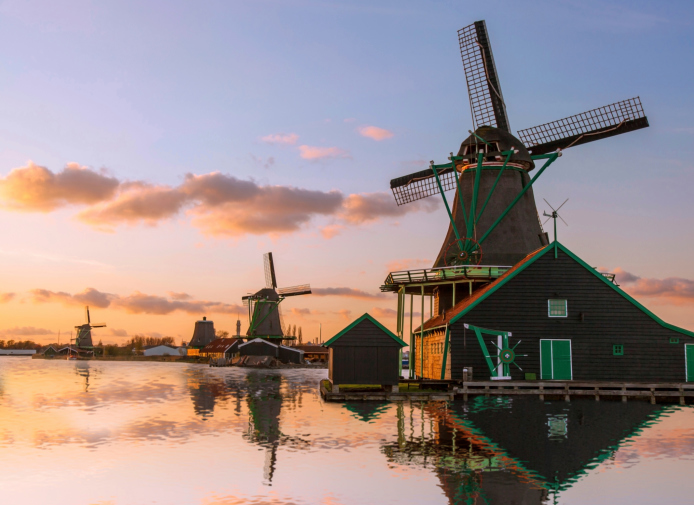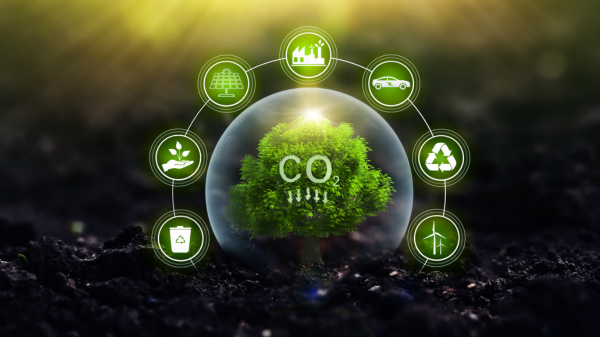Three centuries ago, the world ran on green power. Wood was used for heating and cooking, charcoal for smelting and smithing; wind or water power for pumps, mills, and ships; and whale oil or tallow for lamps. People and soldiers walked or rode horses, and millions of horses and oxen pulled ploughs, wagons, coaches, and artillery.
The result: smoke from open fires choked cities, forests were stripped of trees, most of the crops went to feed draft animals, and streets were littered with horse manure. For many people, life was “nasty, brutish and short.”
Coal and Oil Rescue Environment
Then the steam engine was developed, and later the internal combustion engine, electricity, and refrigeration came along. Green power was replaced by coal and oil. Carbon energy powered factories, mills, pumps, ships, trains, and smelters; and cars, trucks, and tractors replaced the workhorses. The result was a green revolution; forests began to regrow, and vast areas of cropland used for horse feed were released to produce food for humans. Poverty declined, and populations soared.
But new environmental problems emerged. Smoke pollution from burning cheap, dirty coal in millions of open fires, old boilers, and smelters produced massive smog problems in cities such as London and Pittsburgh.
However, as technology improved and the wealthier public demanded cleaner air, coal plants cleaned up their act and even cleaner natural gas-fired and nuclear power plants became more common. The air has largely been cleaned up.
Climate Alarm Harms Environment
In recent years, however, affluent urban alarmists have declared war on the carbon dioxide produced by burning coal, oil, and gas. They claim it is a pollutant and it causes dangerous global warming.
The pollutant claims are easy to refute.
The worst air pollution in the world today is Asian smog. Smog is very visible, whereas carbon-dioxide is a transparent gas exhaled by all living creatures.
Carbon-dioxide plays no part in creating smog.
Smog consists of ash particles, unburnt fuels, and noxious gases produced by inefficient combustion, usually in open fires or obsolete boilers, engines, or smelters with no pollution control equipment. Wind-blown dust, bush and forest fires, blue haze from forests, and drifting volcanic ash add to the smog. Modern coal-fired power stations with efficient pollution controls do not release detectable particulates or noxious gases. As dirty home and industrial combustion is replaced by power from power plants fired by clean coal and natural gas, smog will decline in Asian cities.
All gases in the atmosphere have an effect on global climate, usually a moderating one, reducing the intense heat of the midday sun and reducing the rate of cooling at night. But only in theoretical climate models does carbon dioxide drive global warming; real-world evidence contradicts them.
Forcing Energy Poverty
The unrelenting war on carbon-based fuels poses far greater risks than those from purported global warming. Some zealots advocate “zero emissions” while also, incredibly, opposing nuclear and hydropower. They would take us all back to the BC Era (before coal). Millions of people in Asia and Africa live in such conditions today, and climate alarmists would have them continue to do so and die prematurely because of energy poverty.
In the United States, crops that once fed people are now making “green” ethanol to fuel cars, with native forests being cleared and burned to make way for more fuel crops. Abroad, forests are being cleared to create palm oil plantations, harming native hydrology and wildlife. Our modern “iron horses” are eating the crops again.
The use of carbon fuels in the production, fertilizing, transport, and storage of food has been a major factor in feeding the world population that has grown by several billion since the start of the Industrial Revolution.
If climate alarmists succeed in turning back the clock, food and energy will again be reserved for the rich and powerful, and billions of poor people will die of starvation or exposure. They would create these injustices because they value a vision of a homeostatic eco-utopia more than human well-being. Their agenda is clear: Fewer people, more unfettered nature as playgrounds for the rich.
Viv Forbes ([email protected]) is a geologist and the founder of the Carbon Sense Coalition. A version of this article appeared in American Thinker (Jan. 6).




